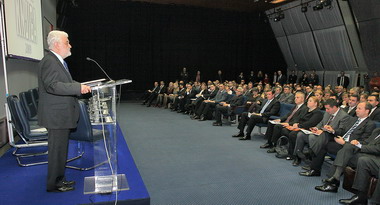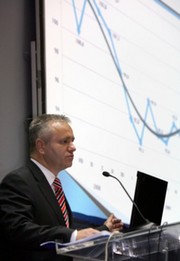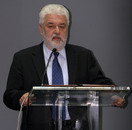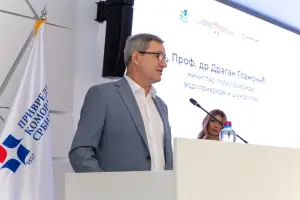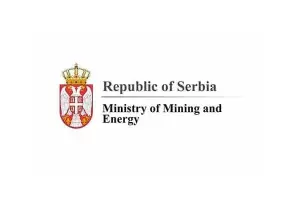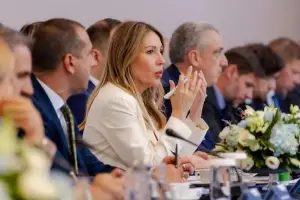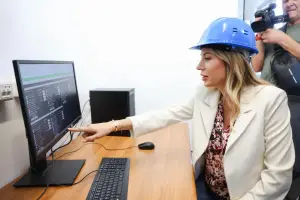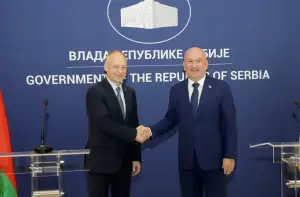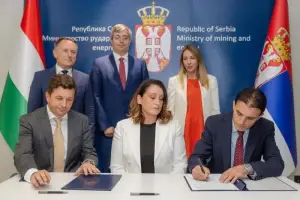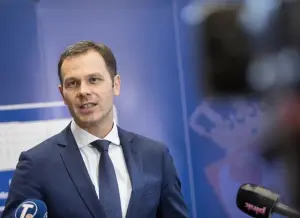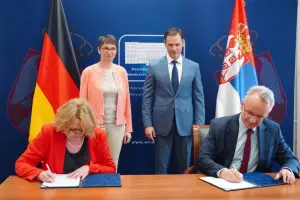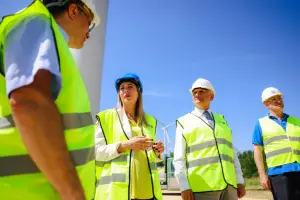Q:
A:
Living standards to improve next year
20 November 2009
Belgrade, Nov 20, 2009 –Serbian Prime Minister Mirko Cvetkovic said today that in 2010 an improvement in the living standards of Serbian citizens can be expected, as well as growth in production and gross domestic product (GDP) and the continuation of reforms.
Speaking at the presentation of the "White Book" of the Foreign Investment Council in Serbia, Cvetkovic said that GDP is expected to grow at least 1.5% over the next year.
In order to achieve that, we reached an agreement with the International Monetary Fund (IMF) and the budget for 2010 is being prepared, Cvetkovic explained.
The projected figures are the consolidated budgetary deficit of 4%, and at the level of the republic budget RSD 104 billion, i.e. 3.5%. By the end of this year, the budgetary deficit will be less than 4% of GDP, as planned at the beginning of the budget year.
The Serbian Prime Minister said that the government managed to maintain a relatively low inflation rate and a stable exchange rate of the dinar, greatly owing to foreign currency reserves, which now stand at €9.7 billion. He explained that in the real sector the government subsidised interests on loans so that companies could obtain cheaper liquidity loans, all with the aim of increasing domestic demand, without which there can be no economic recovery. According to him, the government subsidised the purchase of equipment, lasting consumer goods and flats, it encouraged employment and made social welfare programmes to improve the material position of employees, even in privatised companies.
He told the foreign investors’ representatives that the government opted for a medium-term public sector reform and started reforming public companies, especially the ones operating poorly, such as Zeleznice Srbije and Jat Airways, voicing his hope that the White Book will give additional ideas as to in which directions we should go in.
In order to achieve that, we reached an agreement with the International Monetary Fund (IMF) and the budget for 2010 is being prepared, Cvetkovic explained.
The projected figures are the consolidated budgetary deficit of 4%, and at the level of the republic budget RSD 104 billion, i.e. 3.5%. By the end of this year, the budgetary deficit will be less than 4% of GDP, as planned at the beginning of the budget year.
The Serbian Prime Minister said that the government managed to maintain a relatively low inflation rate and a stable exchange rate of the dinar, greatly owing to foreign currency reserves, which now stand at €9.7 billion. He explained that in the real sector the government subsidised interests on loans so that companies could obtain cheaper liquidity loans, all with the aim of increasing domestic demand, without which there can be no economic recovery. According to him, the government subsidised the purchase of equipment, lasting consumer goods and flats, it encouraged employment and made social welfare programmes to improve the material position of employees, even in privatised companies.
He told the foreign investors’ representatives that the government opted for a medium-term public sector reform and started reforming public companies, especially the ones operating poorly, such as Zeleznice Srbije and Jat Airways, voicing his hope that the White Book will give additional ideas as to in which directions we should go in.
Deputy Prime Minister and Minister of Economy and Regional Development Mladjan Dinkic said that this year around $2 billion foreign direct investments are expected in Serbia, which is much less than anticipated due to the economic crisis.
Dinkic voiced his belief that in 2010 the Serbian economy will start recovering, announcing the possibility of moving some branches of industry form the EU to Serbia, including the production of food, car parts and textiles.
He explained that the recovery of the economy is based on the fact that in the third quarter of the year industrial growth stood at 5%, which helped the overall GDP to recover.
The Minister added that the Serbian economy had a lower GDP fall than other countries in the region because it did not increase VAT and salaries.
The IMF eventually accepted that the public sector reform would be initiated next year, Dinkic recalled, adding that the Foreign Investors Council sent around 120 proposals for law reforms to the government. He also said that the deadline for these proposals is the end of November and that the government will adopt around 90% of them before the end of the year, together with the reform of 197 bylaws from seven different areas. He also said that this year Serbia took loans from abroad to finance several crucial infrastructure projects, therefore the public debt reached around 32% of GDP, which is half that of the EU. Minister of Trade and Services Slobodan Milosavljevic, Minister of Environmental Protection and Spatial Planning Oliver Dulic, Minister of Telecommunications and the Information Society Jasna Matic, Governor of the National Bank of Serbia Radovan Jelasic and representatives of the Foreign Investors Council, Serbian companies and banks also attended the presentation at the Sava Centre.
The Minister added that the Serbian economy had a lower GDP fall than other countries in the region because it did not increase VAT and salaries.
The IMF eventually accepted that the public sector reform would be initiated next year, Dinkic recalled, adding that the Foreign Investors Council sent around 120 proposals for law reforms to the government. He also said that the deadline for these proposals is the end of November and that the government will adopt around 90% of them before the end of the year, together with the reform of 197 bylaws from seven different areas. He also said that this year Serbia took loans from abroad to finance several crucial infrastructure projects, therefore the public debt reached around 32% of GDP, which is half that of the EU. Minister of Trade and Services Slobodan Milosavljevic, Minister of Environmental Protection and Spatial Planning Oliver Dulic, Minister of Telecommunications and the Information Society Jasna Matic, Governor of the National Bank of Serbia Radovan Jelasic and representatives of the Foreign Investors Council, Serbian companies and banks also attended the presentation at the Sava Centre.

